Sepilok Orang Utan Sanctuary
Just over 20 kilometers outside of Sandakan is the Sepilok Orang Utan Sanctuary, a rehibilitaion center created to help re-introduce Orang Utans back to the wild after being displaced by deforestation. Here guests are welcome to watch the two daily feedings in which the great animals swing from the jungle to eat a hefty helping of bananas and milk. Sepilok is one of the few Orang Utan sanctuaries in the entire world. Threatened by extinction, Orang Utans are only found on the islands of Borneo and Java. It is predicted that they could be extinct as early as 2012. That's 5 years away. Less than 7,000 remain in Java and the larger population in Borneo is constantly threatened by the unrelenting creation of palm oil plantations that have taken over an incredible amount of land on the island. The map below shows the remaining areas in the world where Orang Utans live.
Sepilok is one of the few Orang Utan sanctuaries in the entire world. Threatened by extinction, Orang Utans are only found on the islands of Borneo and Java. It is predicted that they could be extinct as early as 2012. That's 5 years away. Less than 7,000 remain in Java and the larger population in Borneo is constantly threatened by the unrelenting creation of palm oil plantations that have taken over an incredible amount of land on the island. The map below shows the remaining areas in the world where Orang Utans live.  According to Harvard psychologist, James Lee, Orang Utan's are the world's smartest animal next to human. They use simple tools, build and live in nests often constructed with roofs to cover them from the rain.
According to Harvard psychologist, James Lee, Orang Utan's are the world's smartest animal next to human. They use simple tools, build and live in nests often constructed with roofs to cover them from the rain. Orang Utans are the world's biggest tree-living mammal. They rarely come down from the trees and, unlike most other monkeys, do not jump between branches but always swing. They are also more solitary than most other primates, usually only coming together to mate.
Orang Utans are the world's biggest tree-living mammal. They rarely come down from the trees and, unlike most other monkeys, do not jump between branches but always swing. They are also more solitary than most other primates, usually only coming together to mate.  In Malaysian Orang Utan translates to "man of the forest." They are the official animal of Sabah and their pictures are found all over cities, advertisements, and souvenirs. Ironically, the country and the rest of Borneo has not done enough to ensure the preservation of the species. A bus ride through the Sabah countryside is more than enough cause alarm. Nearly the entire way the mountains and valleys are covered as far as the eye can see with palm oil plantations. I've never in my life seen one crop dominate an entire landscape so fully.
In Malaysian Orang Utan translates to "man of the forest." They are the official animal of Sabah and their pictures are found all over cities, advertisements, and souvenirs. Ironically, the country and the rest of Borneo has not done enough to ensure the preservation of the species. A bus ride through the Sabah countryside is more than enough cause alarm. Nearly the entire way the mountains and valleys are covered as far as the eye can see with palm oil plantations. I've never in my life seen one crop dominate an entire landscape so fully.  Above is a picture I took while spending 5 days living up the Kintabantagan river in the protected jungle. I was lucky enough to see this Orang Utan in the wild, swinging from tree to tree, stopping to pick and eat some fruit. One of the reasons I'm so passionate about travel is because in the constant change of the world there are many places in the world that won't be the same for much longer. Sadly, Borneo and its population of Orang Utans (as well as pygmy elephants, Sumatran rhinos and other endangered species) is one of these places that are unlikely to last unchanged long enough for my children to see.
Above is a picture I took while spending 5 days living up the Kintabantagan river in the protected jungle. I was lucky enough to see this Orang Utan in the wild, swinging from tree to tree, stopping to pick and eat some fruit. One of the reasons I'm so passionate about travel is because in the constant change of the world there are many places in the world that won't be the same for much longer. Sadly, Borneo and its population of Orang Utans (as well as pygmy elephants, Sumatran rhinos and other endangered species) is one of these places that are unlikely to last unchanged long enough for my children to see.


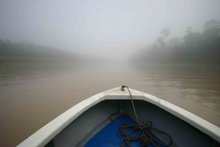
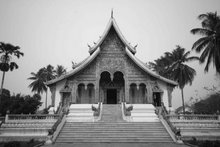




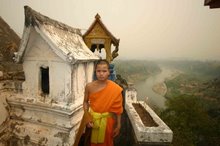

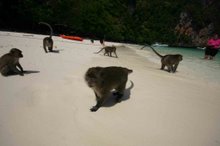

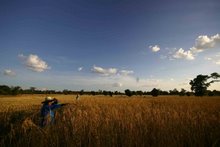
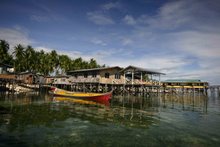

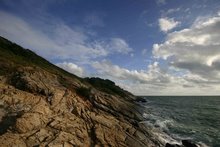

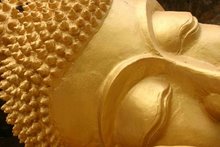
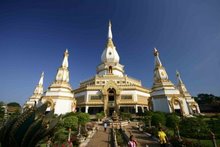


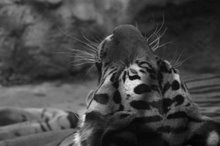

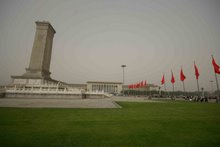

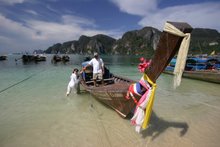
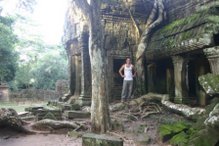
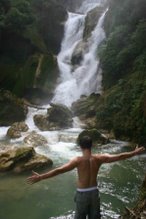
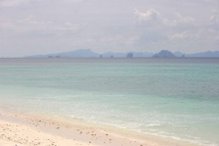
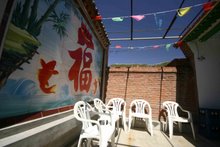

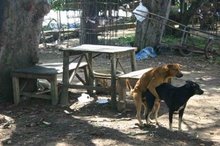
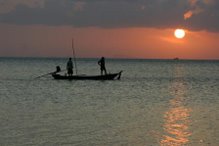
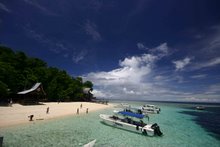
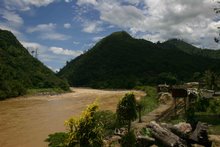
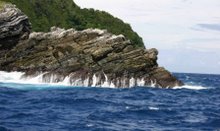
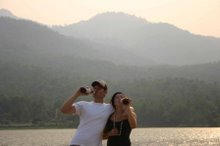
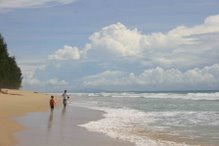
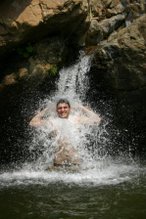
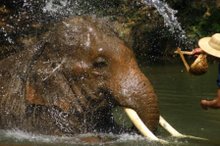
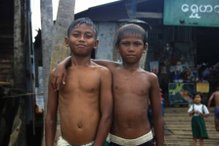
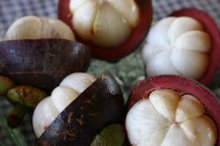
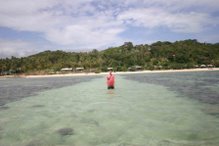
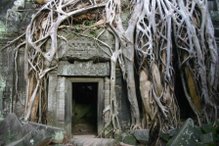
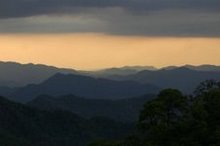
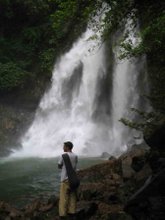
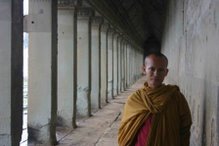
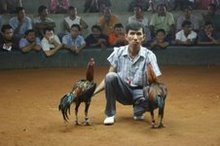
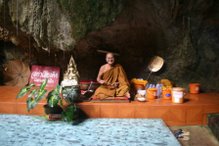
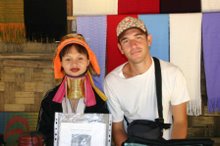
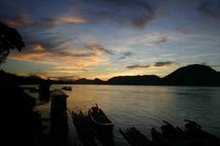
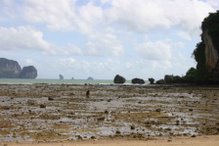
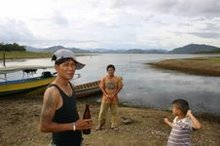
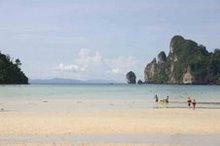
No comments:
Post a Comment